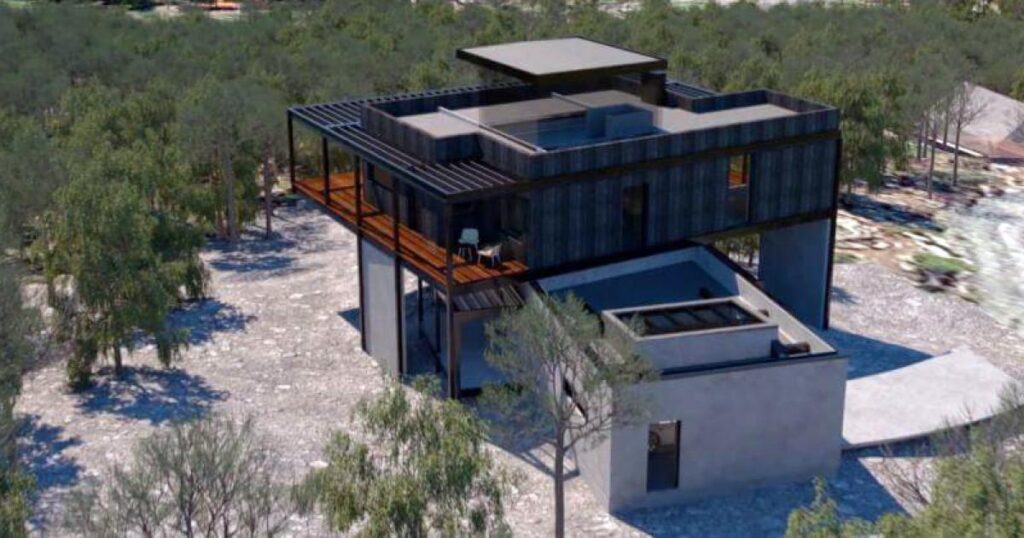
Effective project management is essential for the successful completion of any construction project. From planning and budgeting to execution and quality control, efficient management can save time, reduce costs, and ensure that the final product meets expectations. In this article, we’ll explore key strategies for efficient project management in construction while highlighting the importance of understanding hur man ritar ett hus how to draw a house and creating a solid husritning – house plan.
Key Strategies for Efficient Project Management
1. Comprehensive Planning
The foundation of any successful construction project lies in meticulous planning. Here are some steps to consider:
- Define Objectives: Clearly outline the project goals and objectives. Understand what the end product should look like and how it will function.
- Develop a Detailed Plan: Create a husritning – house plan that encompasses all aspects of the project, including timelines, resources, and milestones. A well-structured plan provides a roadmap for the project and helps identify potential challenges.
2. Utilize Technology
Incorporating technology into project management can streamline processes and improve communication:
- Project Management Software: Utilize tools such as Trello, Asana, or Microsoft Project to track tasks, deadlines, and responsibilities. These platforms enhance collaboration among team members and provide real-time updates.
- BIM (Building Information Modeling): Employing BIM allows for precise 3D modeling of the project, helping visualize the design and identify potential issues early on. This approach ensures everyone involved is on the same page regarding the project’s design and structure.
3. Establish Clear Communication Channels
Effective communication is vital in construction project management:
- Regular Meetings: Schedule regular check-in meetings with the project team to discuss progress, address challenges, and ensure alignment on goals. These meetings help foster collaboration and keep everyone informed.
- Open Lines of Communication: Encourage team members to share updates and concerns promptly. Creating a culture of open communication minimizes misunderstandings and delays.
4. Set Realistic Timelines
Establishing realistic timelines is critical for project success:
- Break Down Tasks: Divide the project into manageable phases and assign realistic deadlines for each task. This approach allows for better tracking of progress and enables timely adjustments as needed.
- Account for Delays: Recognize that construction projects can face unforeseen challenges, such as weather delays or material shortages. Building some buffer time into your schedule can help accommodate these issues without derailing the project.
5. Budget Management
Efficient project management requires diligent budgeting:
- Create a Detailed Budget: Develop a comprehensive budget that includes all expenses related to labor, materials, permits, and contingencies. Ensure that your budget aligns with your project plan.
- Monitor Expenses: Regularly review expenses against your budget to identify potential overruns early. Staying on top of costs allows for timely adjustments to keep the project within financial limits.
6. Quality Control Measures
Maintaining quality throughout the construction process is essential:
- Set Quality Standards: Establish clear quality standards and benchmarks for each phase of the project. Communicate these expectations to the entire team.
- Conduct Inspections: Regularly inspect the work being done to ensure it meets quality standards. Address any issues immediately to prevent them from escalating.
7. Continuous Improvement
Finally, always look for ways to improve project management practices:
- Post-Project Evaluation: Once the project is complete, conduct a thorough evaluation to identify what worked well and what could be improved. Gather feedback from team members and stakeholders to inform future projects.
- Stay Updated on Best Practices: Keep abreast of the latest trends and techniques in construction project management. Continuous learning will help you refine your skills and enhance your project outcomes.
Conclusion
Efficient project management is the backbone of successful construction projects. By prioritizing comprehensive planning, utilizing technology, and fostering clear communication, you can streamline your processes and achieve better results. Understanding hur man ritar ett hus – how to draw a house and creating a well-thought-out husritning house plan are integral steps that set the stage for project success.
By implementing these strategies and remaining adaptable to challenges, you can manage construction projects more effectively, ensuring they are completed on time, within budget, and to the highest quality standards. Happy building!